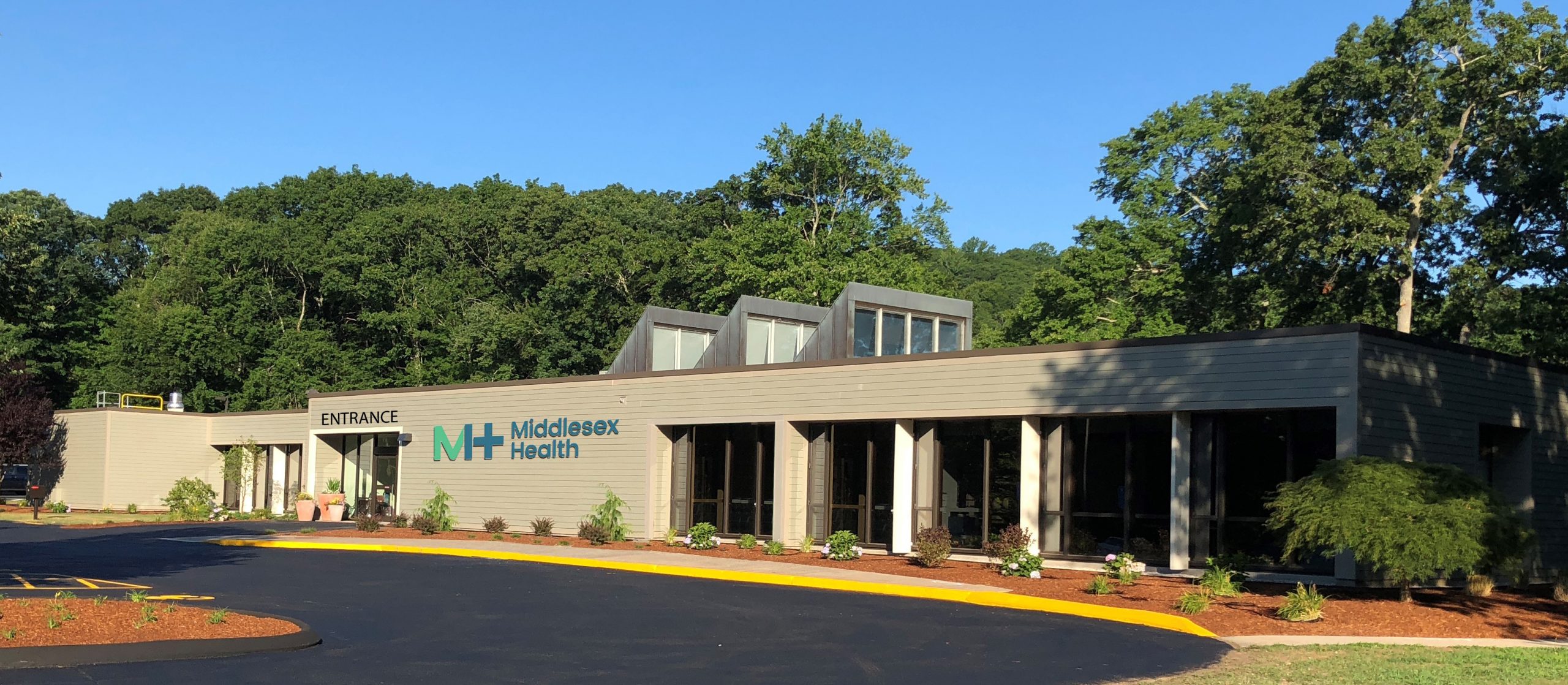Middlesex Health Offers Centralized Pediatric Help for Developmental Disorders
With Connecticut families needing well-rounded support for their children and adolescents with developmental disorders, including autism, Middlesex Health is working to provide supportive care to those within the local community and from across Connecticut with the opening of The Mayer Center in Essex, Conn. Middlesex saw a need in Connecticut, particularly along the shoreline, for families with children who have developmental disorders and need access to services, said Annie Calamari, LCSW, manager of Middlesex Health’s Outpatient Child and Adolescent Services, adding that these families ideally want to find all treatments in one location. Because of this, Middlesex is opening The Mayer Center, which is named in recognition of Sally and George Mayer, of Essex, and their donation to the project’s capital fundraising campaign.
At the new center, Calamari will work with other mental health practitioners to help address any patient behavioral health concerns, while Brian Taber, a physical therapist and the director of physical rehabilitation at Middlesex Health, will work with his team to provide physical, speech and occupational therapy. Together, they will be able to help children with developmental delays and physical difficulties related to issues such as cerebral palsy, weak muscle strength, feeding problems and more. “We had families traveling around the state and piecemealing services because services are few and far between in Middlesex County and along the Connecticut shoreline,” Calamari stated. “The services that are available have waitlists. For example, there are waitlists for evaluations for autism, and without those evaluations, families can’t get to the next level of treatment. We are removing the barriers, while providing high-quality services in our own community.”
“Families are driving all over the state to get different pieces of care,” Taber concurred. “We want to give them care in one place.” That is changing this fall. The new center will offer comprehensive care for children and adolescents with developmental needs, including applied behavioral analysis (ABA) and treatment; speech and language therapy, communication and feeding help; physical therapy treatments covering body adaptation, coordination and large motor skills; and occupational therapy with sensory adaptation (light and sound) and fine motor skills, to name a few.
The center will delve into medication management and integrative care as well. It intends to hold social group meetings, as well as parent support groups for managing children’s care, connection, information and more. The intention is to mitigate issues and improve outcomes for the families. The new center will focus on the unique needs of children with developmental challenges in order to maximize their abilities so they can succeed in life. To access the center’s offerings, families will be able to call one phone number to connect to all services. Center staff will work collaboratively with the child’s pediatrician and other providers, including school staff, and assist families in obtaining referrals for the services if needed. Staff will work collaboratively with both families and the community to facilitate care and will refer children to other services as needed.
The center’s services are being offered to families from throughout Connecticut, not just Middlesex County. “Wherever families are in the process, we will help them,” explained Calamari. “Some need a diagnosis, some have the diagnosis and need treatment, and others need more services. For some families, we will help with their care after they age out of their Birth to Three services.” As for the physical space, these services will be offered within a building Middlesex Health currently owns at 252 Westbrook Road in Essex. With well-planned interior construction, Middlesex Health is adapting a 3,100-square-foot space to be open and flexible with both private and group spaces to meet the needs of the younger patients and their families. The layout includes a large gym with sensory equipment, a dedicated sensory room to calm or stimulate the child, a large multi-purpose room for social groups and trainings, a dedicated space for speech pathology, a pediatric pelvic floor treatment area, multiple treatment rooms, a comfortable waiting space, and more to enable practitioners to utilize the appropriate space for their patients. “The goal is to make it a convenient and comfortable place for kids to come—where they enjoy being—to make their therapies as successful as possible,” Taber stated. There can be an additional avenue of local continuity as children age.
The other part of the Middlesex Health building in Essex is used for adult services, such as physical therapy, speech therapy and occupational health. As children near the end of their pediatric timeline and services, Middlesex Health can continue to offer internal resources to maintain their therapies. “We have experienced, qualified staff, and everyone is excited to provide these services for children in the new center,” Calamari expressed. “We have the right people to help.”






More Stories
Hospital for Special Care’s Ivan Lendl Adaptive Sports Camp
Jamie Shawver, D.O.: The Modern-Day Family Doctor
UConn Health Achieves Excellence in Eye Care in Record Time: Edmund P. Farris, M.D. Chief, Division of Ophthalmology